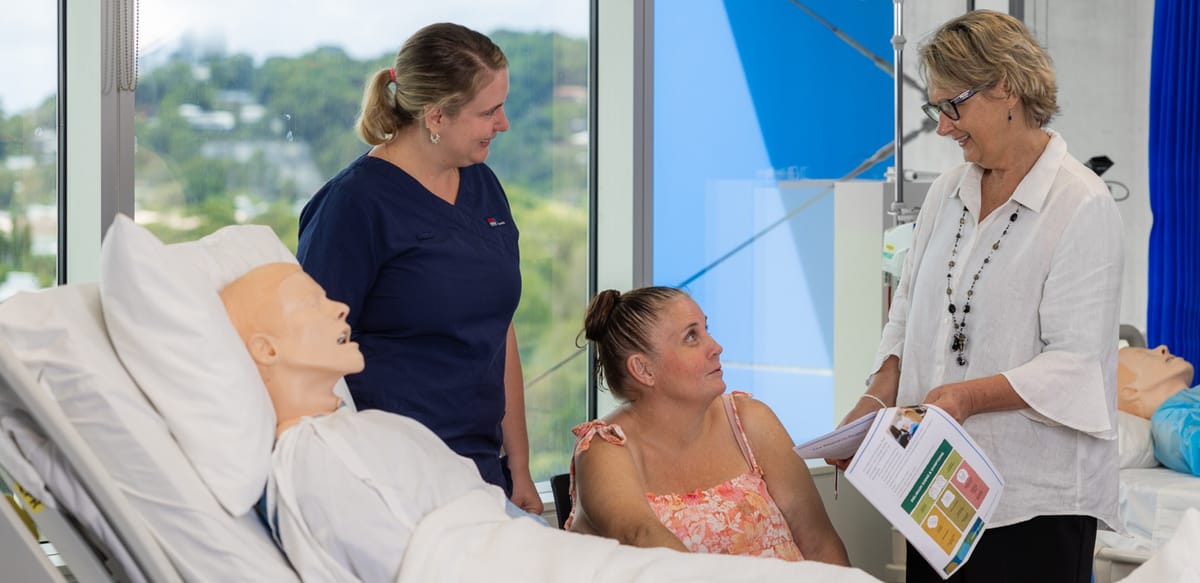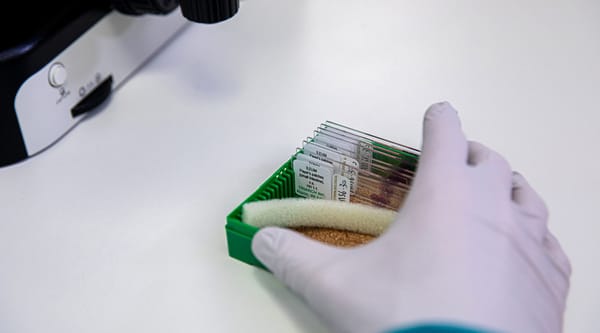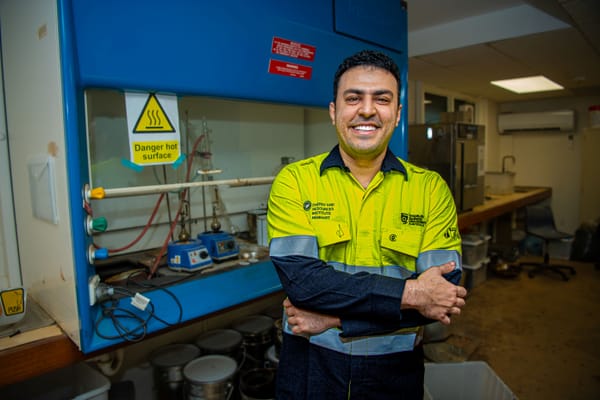Delirium ID toolkit boosts carer knowledge to prevent, manage the condition
Carers involved in a world-first pilot study have endorsed an online tool for assessing delirium which gives them a key role in the management of loved ones affected by the confused mental state.

First published on Southern Cross University
Carers involved in a world-first pilot study have endorsed an online tool for assessing delirium which gives them a key role in the management of loved ones affected by the confused mental state.
The new Australian-led international research, involving Southern Cross University, the University of the Sunshine Coast, the University of Saskatchewan (Canada), the University of Canberra and the Northern NSW Local Health District, showed delirium knowledge amongst carers increased significantly through use of the online delirium toolkit.
The pilot, conducted at The Tweed Hospital on the NSW North Coast, evaluated the effectiveness of PREDICT (Prevention and Early Delirium Identification Carer Toolkit) to support partnerships between carers and nurses to prevent and manage delirium.
“The toolkit supports family carers to understand delirium and make sense of their predicament. Having gained knowledge, carers can partner with nurses.”
/prod01/channel_8/media/scu-dep/news/images/2024/Delirium_toolkit_20240424-37_credit-Southern-Cross-University-720X475.jpg)
Associate Professor Christina Aggar
Leader of the delirium toolkit project, Southern Cross University
Delirium is frightening for elderly people experiencing it and alarming for carers attempting to support them.
Manifesting as a sudden decline in a person’s usual mental function, delirium is a stress-response usually caused by a number of underlying acute, short-term illnesses and medical complications, for example UTI (urinary tract infection), pneumonia or post-surgery. It is often mistaken for dementia because both conditions have similar symptoms, such as confusion, agitation and delusions. However, unlike dementia, delirium comes on very quickly and is potentially reversible.
The lead investigator is Dr Christina Aggar, Associate Professor of Nursing at Southern Cross University and Conjoint Northern NSW Local Health District.
/prod01/channel_8/media/scu-dep/news/images/2024/Delirium_toolkit_20240424-8_credit-Southern-Cross-University-720X475.jpg)
“Delirium is the number one hospital-acquired complication in Australia, costing our healthcare system more than a billion dollars a year,” said Dr Aggar. “The emotional and financial toll to the patient and the carer is also extremely significant.
“If a healthcare professional doesn’t know the patient, it can be difficult to tell the difference between delirium and dementia. This is why carers are well-placed to recognised subtle changes indicative of delirium and why we’ve involved them in the pilot.
“PREDICT supports family carers to understand delirium and make sense of their predicament. Having gained knowledge about delirium, carers can partner with nurses to address risk and implement strategies to prevent and manage delirium.
“We know that education is key, but we've never used education to support our family carers to actually partner with healthcare professionals in the prevention of delirium.”
Learn more: What is delirium? by Christina Aggar published in The Conversation.
/prod01/channel_8/media/scu-dep/news/images/2024/Delirium-Toolkit-video-clip_what-is-delirium.png)
Dr Alison Craswell from the University of the Sunshine Coast said collaboration ensured the robustness of the toolkit.
“This project has brought together a team of experts working with lived experience consumers, who have all cared for others, to make sure the toolkit is fit for purpose,” said Dr Craswell.
“The collaboration with our colleagues in Canada has ensured the research has an international reach. This has led to successful Canadian funding to pilot the toolkit in Saskatchewan province with Dr Roslyn Compton and the Better LTC team of researchers and family partners.”
Dr Kasia Bail, Professor of Gerontological Nursing at the University of Canberra, said the use of PREDICT proved life-changing for carers.
“In this research pilot, in addition to the earlier work we’ve been conducting with Associate Professor Aggar’s team, we found that carer knowledge about delirium increased, and that carers wanted to be involved in delirium prevention and management,” said Dr Bail.
“This shows us that the next step in implementing change into the hospital environment needs to be working closely with carers, to support their access to information and partnership with clinicians.
“This research aims to empower carers and potentially reduce further complications such as increased length of stay, functional and cognitive decline, and avoidable admissions to residential care. We’d like to make this common complication less common, and less dire than it can be.”
PREDICT was available to carers via a QR code directing users to a website (a hard copy was also available). The easy-to-use interactive assessment tool ensured that a carer or loved one was able to determine whether a person was at risk of delirium or whether the person was likely to have delirium. The toolkit also provided valuable information that supports carers’ own wellbeing.
The next step for the research team is to secure funding to develop a larger trial at hospitals around the country.
The research is published in the Journal of General Internal Medicine.
'A Toolkit for Delirium Identification and Promoting Partnerships Between Carers and Nurses: A Pilot Pre–Post Feasibility Study'
DOI: 10.1007/s11606-024-08734-6
/prod01/channel_8/media/scu-dep/news/images/2024/Delirium-Toolkit_risk-factors.png)




